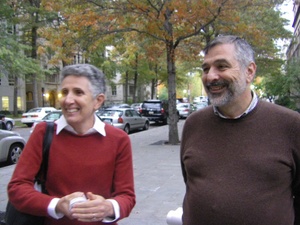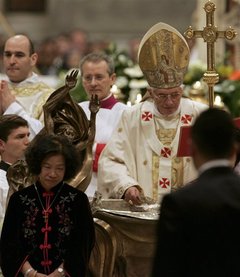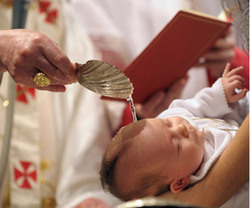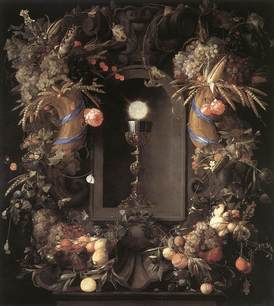 On Wednesday, October 27, Pope Benedict XVI noted that in
On Wednesday, October 27, Pope Benedict XVI noted that in
the Great Jubilee of the Year 2000, the Venerable Servant of God John Paul II
proclaimed Saint Bridget of Sweden (1303-1373), co-patroness of the whole of
Europe. It’s the hope of all of us, as Benedict indicated, that Saint Bridget
“…can intercede effectively before God, to obtain the much-awaited grace of the
full unity of all Christians. We want to pray … for this same intention, which
we consider so important, so that Europe will be able to be nourished from its
own Christian roots, invoking the powerful intercession of St. Bridget of
Sweden, faithful disciple of God, co-patroness of Europe.”
Pope noted something that I think is quite interesting, perhaps quite bold to
say, even if it is the teaching of the Church, that married couples are to help
each other get to heaven: “to advance in the Christian life.” Our Catholic
teaching on marriage is that man and woman are to form a “conjugal
spirituality” that is “follow a path of sanctity.” The two pertinent paragraphs
of a longer address are here:
religious who initiated her in the study of the Scriptures, exercised a very
positive influence on her own family that, thanks to her presence, became a
true “domestic church.” Together with her husband, she adopted the
Rule of the Franciscan Tertiaries. She practiced works of charity towards the
indigent with generosity; she also founded a hospital. Together with his wife,
Ulf learned to improve his character and to advance in the Christian life. On
returning from a long pilgrimage to Santiago de Compostela, taken in 1341 with
other members of the family, the spouses matured the plan to live in
continence, but shortly after, in the peace of a monastery to which he had
retired, Ulf concluded his earthly life.
helps us to appreciate what today we could define an authentic “conjugal
spirituality”: Together, Christian spouses can follow a path of sanctity,
supported by the grace of the sacrament of Marriage. Not infrequently, as
happened in the lives of St. Bridget and Ulf, it is the wife who with her
religious sensibility, with delicacy and gentleness, is able to make the
husband follow a path of faith. I am thinking, with recognition, of so many
women who, day in day out, still today illumine their families with their
testimony of Christian life. May the Spirit of the Lord fuel the sanctity of
Christian spouses, to show the world the beauty of marriage lived according to
the values of the Gospel: love, tenderness, mutual help, fecundity in
generating and educating children, openness and solidarity to the world,
participation in the life of the Church.”



